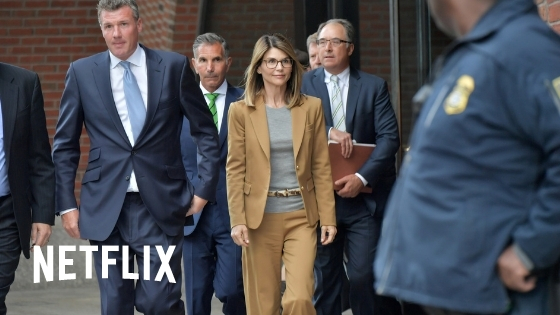Last week, Netflix released a documentary on the Varsity Blues admissions scandal (see the trailer here), and in light of both this documentary and our position as college counselors, we thought it best to reflect on the matter. This is somewhat different than most of our blog posts, but fear not, advice on all things high school and college admissions-related will return next week.
In this post we’ll talk about some of the ethical considerations of college consulting, and how we address them at Ivy Scholars. We’ll also reflect on some of what was covered in the Varsity Blues documentary.
At All Costs
At its core, the Varsity Blues scandal was caused by parents who wanted their children to get into college, no matter the material or moral cost. An increasing amount of societal importance and pressure has been put on college. Not just on going to college, but on going to the right college, so you can make the right kind of connections and have the right kind of life.
There is nothing wrong with wanting your children to be successful, and to lead good and fulfilling lives. It is one of the oldest and most basic human desires, and one we see every day here at Ivy Scholars. Indeed, this is often a noble goal, one which drives parents to give their children lives they never had. At its best, this is a noble pursuit, at its worst, it causes scandals like the one we saw.
This can be a fine line to walk, especially for those who are unwary. The distinction comes when you cross over from helping to putting a thumb on the scale directly. There is some nuance here, so we’ll detail our own ethics policy at Ivy Scholars, which guides how we help students, and more importantly, what we don’t do.
Our Ethics Policy
At Ivy Scholars, we seek to be guides in the college admissions process. Like guides through the wilderness or climbing a mountain, we can show you the way, and help you avoid the worst of the perils and pitfalls. In the end, however, you make the climb yourself; we cannot carry you, nor do the work for you.
Thus, when we help students with their college applications, we seek to point them in the right direction, and give them guidance when applying. We teach how to build proper prose, but do not write essays for students. We know what activities colleges like to see, but do not help our students lie about or embellish their accomplishments. We help students study for tests, but do not take the tests in their stead.
This is reflected in our article on college admissions as a field. We know the way, and we can show it to students, but in the end, they have to do the work. That is how we maintain an ethical standard. This is better not only for us, but for students and parents as well.
Putting legal and moral considerations aside for a moment, students who need underhanded methods to enroll in a top college likely won’t do well there. These colleges are bastions of learning, and this is exemplified through rigorous courses, and high expectations for academic performance. 40 hours of reading and problem sets outside of class is the norm, not the exception.
While getting students in through underhanded means may benefit them in the short term, many will have trouble coping with what is required of them, and will not do well. Most admissions companies know this, and few will go to the lengths Rick Singer did in finding side doors to college admissions.
The Trouble With Colleges
While the bulk of the blame for the admissions scandal should be, and is, laid at the feet of those who actively cheated the system, top colleges themselves are not blameless.
There are two ways that top colleges failed students and parents in this admissions scandal. The first is by promoting brand and prestige above all, and the second is by relaxing standards for admissions in the first place.
The top schools are and remain the top schools due to prestige alone. Not one of the college ranking lists measures the caliber of academic instruction, indeed, there is no reasonable way to measure this. Instead the ratings twist and purport, and come out with a list that looks correct because everyone expects it to look like that. Harvard, Yale, Princeton, or Stanford is on top. The Ivy+ colleges round out the top ten. Private schools are almost universally ranked higher than public ones.
Colleges care deeply about these rankings, though they pretend not to. Colleges themselves are one of the largest drivers of increasing application rates, and the ensuing arms race as high school students feel forced to compete with an ever widening and more-qualified crowd, seeking to distinguish themselves from the throngs of thousands.
WIth this ever increasing feeling of pressure, and the sense that if you don’t go to a top school, all the effort was for nothing, the decision to cheat becomes a siren song for some parents, who will do anything to get their kids ahead.
This is compounded by another factor at universities, the belief, often true, that admissions are inherently unfair. While some categorizations of bias in admissions are unfair (see our article on Asian-American discrimination), others are more pressing, notably athletics and legacy admissions.
While admissions standards are not necessarily lowered for athletic recruits and legacy students, they often are, and the both groups receive considerable admissions advantages at top schools. Indeed, it was by manipulating this very system that the Varsity Blues scandal became so large. If colleges want to properly affirm that admissions processes are equitable, and nip the next admissions scandal in the bud, then they need to reform how admissions works for these groups.
Final Thoughts on Varsity Blues
College admissions are stressful, and some try to deal with that stress by looking for guarantees, no matter the cost. We don’t give guarantees; we know better than that. There is risk associated with every activity, all we can do is minimize it, and illuminate it, and help you understand the risks, and take them deliberately. We cannot offer guarantees; there is no such thing as certain in elite college admissions.
To that end, we advise you to be wary of anyone who offers you guarantees or makes an offer that seems too good to be true, as these offers often are, in fact, too good to be true. If you are worried about your college admissions journey and want to know how we can ethically help your child on that path, schedule a free consultation, we’re always happy to hear from you.








